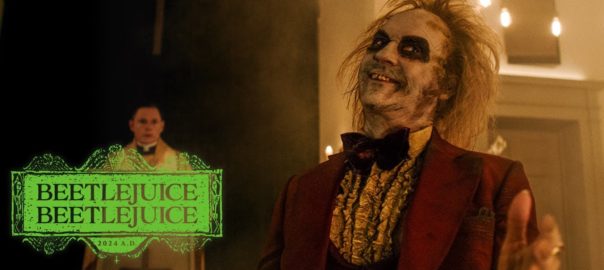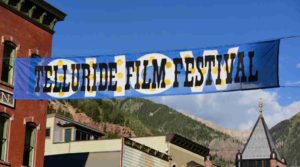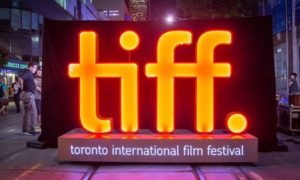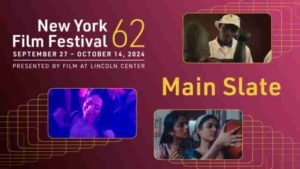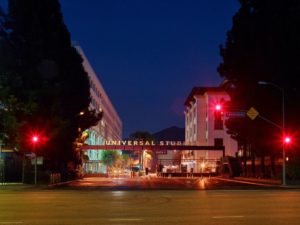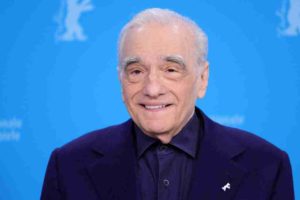
81-year-old Academy Award winning American director Martin Scorcese
In an industry often perceived as dominated by youth and the next big thing, the continuing contributions of directors over 65 years of age are a testament to the timeless nature of cinematic storytelling.
Far from being sidelined, these seasoned filmmakers bring a depth of experience, wisdom, and a unique perspective that enriches the cinematic landscape.
Hollywood and global cinema alike benefit immensely from their ongoing work, as they challenge the norms and push creative boundaries well into their later years.
Mark Twain once quipped, “Age is a case of mind over matter. If you don’t mind it, it doesn’t matter.”
When you consider the work of acclaimed American director Martin Scorsese, age certainly isn’t making a difference.
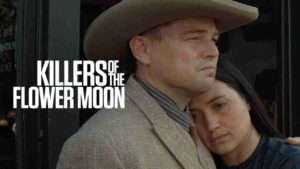
After landing 10 Oscar nominations for last year’s historical crime epic Killers of the Flower Moon, the 81-year-old director has mapped out his next several projects. Sources say he plans to shoot two films back to back: the first about Jesus, the second a Frank Sinatra biopic.
Scorsese isn’t the only director from the over-75 set who is doing some of his most ambitious work.

Adam Driver and Nathalie Emmanuel star in Francis Ford Coppola’s new film, Megalopolis
The Cannes competition lineup this year featured three of his compatriots: 85-year-old Francis Ford Coppola (with Megalopolis), 81-year-old Canadian director David Cronenberg (The Shrouds), and 77-year-old Paul Schrader (Oh, Canada).
Their productive later years are remarkable considering Hollywood hasn’t always been kind to aging auteurs — Billy Wilder (Some Like It Hot, The Apartment), for instance, spent his final two decades struggling to get one more movie produced.
“I’m sure most artists want to keep working, but sometimes you’re not fortunate enough, lucky enough, good enough to stay in the arena,” Schrader, who wrote the screenplay for Scorsese’s seminal 1976 film Taxi Driver, told journalists at Cannes.
“And if you don’t have that creative motivation, you’re just gonna get called out as an emblem of something that used to be. But I had to keep working. I had some COVID health problems, and every time I thought that I might die, I would get a new idea.”
At 86, Ridley Scott is literally staying in the arena.
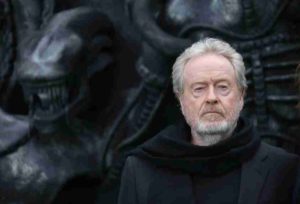
86-year-old British director Ridley Scott readies for the release of a sequel to his 2000 film, Gladiator
Footage from his long-awaited return to the Colosseum for a Gladiator sequel emerged as a favourite at CinemaCon this year, where Paramount showed epic scenes to movie theatre executives, dominating the headlines out of Las Vegas.
Perhaps because Scott continues to work with top-notch below-the-line crew members, the swords-and-sandals saga, which stars Paul Mescal and Denzel Washington, looked more finished seven months ahead of its November 22 release than some superhero tentpoles on opening night.
“Ridley Scott is the master of creating the kinds of movie spectacles that the cinematic experience was created for and is among the most tenacious and vibrant auteurs working today,” Paramount CEO Brian Robbins told the crowd at the April 11 presentation. Robbins told those gathered that he will be working with Scott on his next movie, a Bee Gees biopic for Paramount.
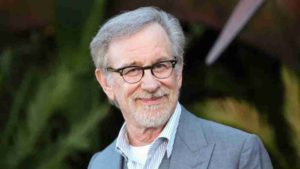
77-year-old celebrated American director, Steven Spielberg, readies to film his next movie
For his part, Steven Spielberg, at age 77, is also staying busy. Spielberg is reportedly already at work on his next project, a UFO film based on his own original idea. David Koepp is writing the screenplay, sources say.
But maybe no feat of career longevity is as impressive as that of Clint Eastwood.
The 93-year-old director just wrapped postproduction on Juror No. 2.
Insiders say Warner Bros. is thrilled by what it has seen of the Nicholas Hoult thriller about a murder trial juror who realizes he may be at fault for the victim’s death. If the film is ultimately embraced, that will offer a fitting plot twist considering several studios passed on the low-risk, low-budget film.

Clint Eastwood began his career in Hollywood in 1954, 70 years ago this year. And he’s still active!
Even at 93, Eastwood should never be counted out.
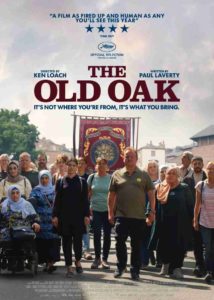
87-year-old British auteur Ken Loach’s latest film, The Old Oak — released earlier this year — has emerged as one of VanRamblings’ favourite films of 2024. A must-watch. Available On Demand.
Across the Atlantic, British director Ken Loach, 87, remains a powerful voice in cinema. Renowned for his socially conscious films, Loach’s most recent work, The Old Oak won accolades at Cannes in May, the title referring to the last pub standing in a once thriving mining village in northern England, a gathering space for a community that has fallen on hard times.
Other notable directors of an age …
Margarethe von Trotta, 81. The leading New German Cinema director just released her latest, Ingeborg Bachmann — Journey Into the Desert.
Werner Herzog, 81. The acclaimed German director has been making films since the 1960s.
Stephen Frears, 82. The British director of The Queen and Dangerous Liaisons, released The Lost King earlier this year.
Brian De Palma, 83. The Untouchables and Carrie director is in pre-production for his next film, Sweet Vengeance, a murder mystery.
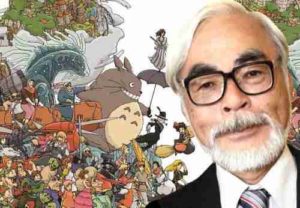
Master Japanese filmmaker, and co-founder of Studio Ghibli, 82-years-young Hayao Miyazaki
In Japan, Hayao Miyazaki, co-founder of Studio Ghibli, at 82, is once again coming out of retirement to direct How Do You Live?
Miyazaki’s films, characterized by their imaginative storytelling and profound emotional depth, have left an indelible mark on animation and global cinema. Miyazaki’s return to filmmaking is eagerly anticipated by fans worldwide, underscoring the lasting impact of his creative genius.
The continued success of these directors challenges ageist assumptions within the industry and society at large.
Their work exemplifies how experience can enhance artistic expression, offering rich, nuanced narratives that often elude younger filmmakers. Moreover, their ability to adapt to technological advancements and changing audience tastes underscores their relevance in a rapidly evolving industry.
These directors also serve as mentors and role models, guiding the next generation of filmmakers. Their careers offer valuable lessons in perseverance, adaptability, and the relentless pursuit of excellence. The stories they tell and the methods they employ reflect decades of accumulated knowledge and insights, providing a treasure trove of learning for aspiring directors.
In a broader sense, the ongoing contributions of directors over 65 highlight the importance of diversity in storytelling.
Just as the industry has made strides toward greater inclusivity in terms of race, gender, and sexuality, recognizing and valuing the contributions of older filmmakers is crucial. The work of elder directors adds richness and diversity to the cinematic tapestry, ensuring that film remains a medium that reflects the full spectrum of human experience.


